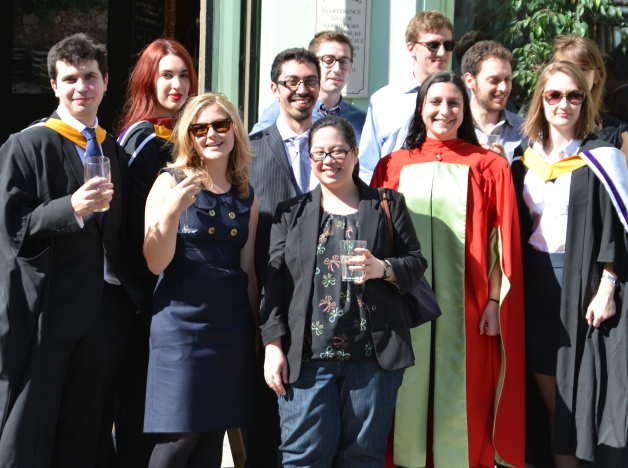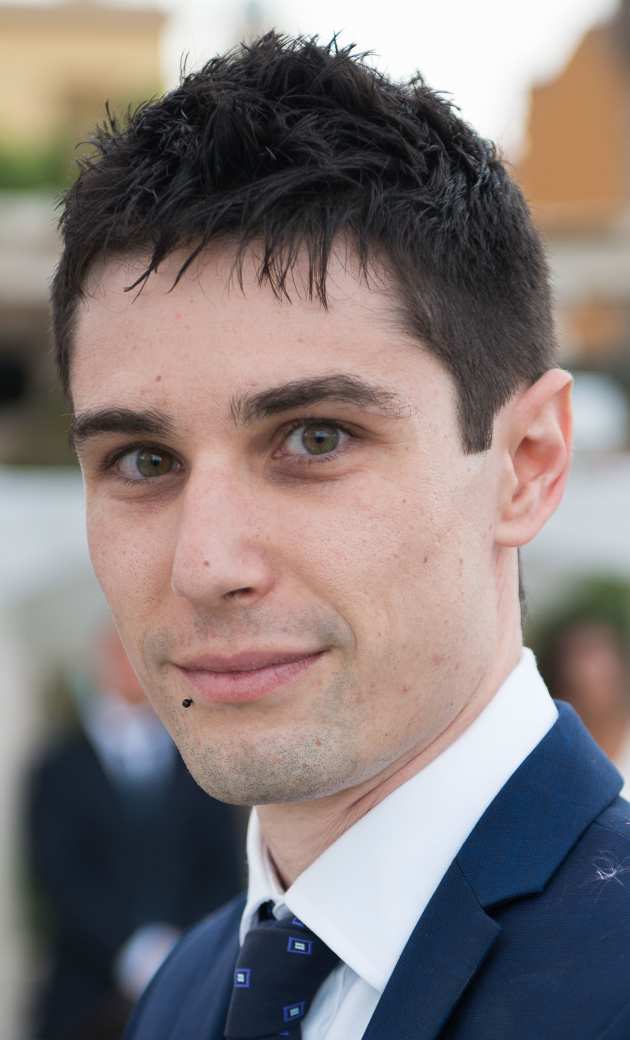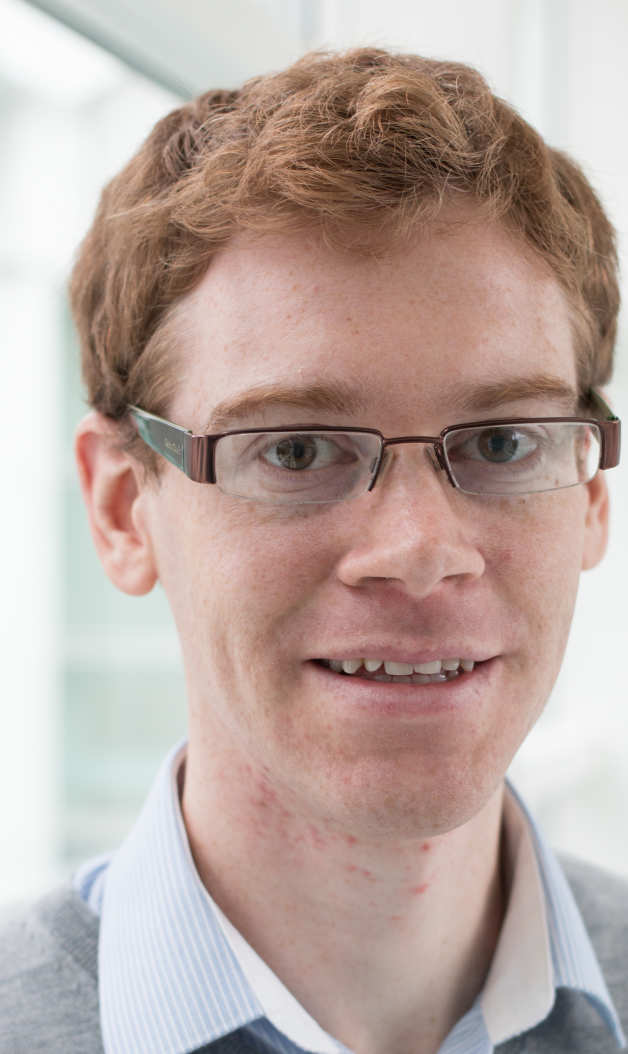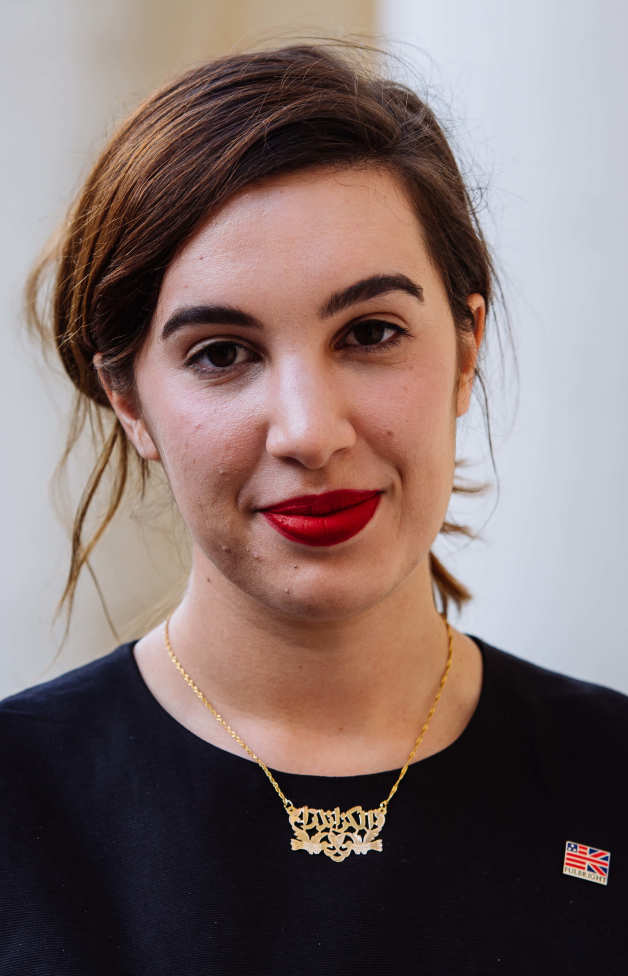Alumni
 Plastic Electronics CDT MRes and PhD graduates go on to a wide variety of careers, from research in industry and academia, to starting their own business or working in the financial sector. The CDT's strong links with our industrial partners result in many of our graduates going on to work for these companies.
Plastic Electronics CDT MRes and PhD graduates go on to a wide variety of careers, from research in industry and academia, to starting their own business or working in the financial sector. The CDT's strong links with our industrial partners result in many of our graduates going on to work for these companies.
Alumni Careers
George Barnes - Associate Manager, Global Solutions at IQVIA
David Beesley - Research Fellow at University of Cambridge
David James - Research Scientist at Merck
Stephen Logan - Data Analyst at Tesco
Roland Piper - Senior Characterisation Engineer at Wave Optics Ltd
Paul Westacott - Commercial Analyst at Origami Energy
Matthew Allinson - Communications and Public Engagement Manager at Kings College
James Bannock - Research Fellow at Imperial College
Mohammad Chaudhary - Research Associate at Imperial College
Rajeev Dattani - Postdoctoral Research Fellow at European Radiation Synchrotron Facility
Sheridan Few - Research Associate for Mitigation Technology at Imperial College
Andrew MacLachlan - Continuous Service Improvement Advisor at IBM
Sarah-Emily Mutch - Financial Analyst at Arkbe Ltd
Joseph Shaw - Design Engineer at ASML
Sebastian Wood - Higher Research Scientist at NPL
Jasvir Bhamrah Harley - Teaching Fellow at UCL
Abby Casey - Research Fellow at Imperial College
Sarah Holliday - Fellow at Year Here
Simon Hunter - Head of Product at Hinge Health
Giseok Lee - Research Officer at BASF
Alexandra Ramadan - Research Associate at University of Oxford
George Richardson - Principal Researcher at Nesta
Case studies
Plastic Electronics Alumni
Graduates from the Plastic Electronics CDT go on to a wide range of careers, from research in academia and industry, to running their own business. Here are a few case studies...
Dr Luca Occhi
Cohort 4, 2012 start
 Being part of the Plastic Electronics CDT has been a milestone to my professional career. From the first day, the MRes course gave me an extensive introduction to the organic electronic field, a significant help in preparation for the following three years-PhD project, and put me in contact with an international environment full of smart and driven scientist who challenged, motivated, and inspired me during my stay at Imperial College (and even afterwards). I also had the opportunity to be part of a cohort of international students: this helped me to settle down in a new university and was the source of fruitful collaborations. Furthermore, the experience at PE-CDT allowed me to travel and attend several workshops and conferences, such as the MRS Spring in San Francisco or the ICOOPMA in Montréal, so having the opportunity to be in contact with scientists coming from all over the world, and to learn how effectively present (and defend) my work in from of an audience of experts. Together with a great number of research-related activities, I was also involved in other kind of events, such as the organisation of the annual CDT Festival of Science, a chance for students to have a taste of what it means to effectively organise an event for a large number of people (from inviting the speakers, to setting up the schedule and choosing of the catering company). In conclusion, I believe that my PE-CDT experience has prepared me to enter the job market possessing a wide range of skills that have proved to be essential in my career.
Being part of the Plastic Electronics CDT has been a milestone to my professional career. From the first day, the MRes course gave me an extensive introduction to the organic electronic field, a significant help in preparation for the following three years-PhD project, and put me in contact with an international environment full of smart and driven scientist who challenged, motivated, and inspired me during my stay at Imperial College (and even afterwards). I also had the opportunity to be part of a cohort of international students: this helped me to settle down in a new university and was the source of fruitful collaborations. Furthermore, the experience at PE-CDT allowed me to travel and attend several workshops and conferences, such as the MRS Spring in San Francisco or the ICOOPMA in Montréal, so having the opportunity to be in contact with scientists coming from all over the world, and to learn how effectively present (and defend) my work in from of an audience of experts. Together with a great number of research-related activities, I was also involved in other kind of events, such as the organisation of the annual CDT Festival of Science, a chance for students to have a taste of what it means to effectively organise an event for a large number of people (from inviting the speakers, to setting up the schedule and choosing of the catering company). In conclusion, I believe that my PE-CDT experience has prepared me to enter the job market possessing a wide range of skills that have proved to be essential in my career.
Control and Test Engineer, Cambridge Mechatronics Ltd, UK
I am currently working as a Control and Test Engineer at Cambridge Mechatronics Ltd, a highly technology engineering company based in Cambridge (UK), focused on the design and development of actuators utilising shape memory alloys (SMA). More in details, I am part of a team involved in the development of haptic actuators, a set of devices that interact with the sense of touch, and able to be used in a wide range of electronic products.
Dr Sebastian Wood
Cohort 2, 2010 start
 As a Plastic Electronics CDT student, I benefited directly from the opportunities and guidance the CDT offered me at the outset of my career. I started the course with very little knowledge of plastic electronics so the taught courses in the MRes year were invaluable to me, and provided a strong foundation and direction for my PhD and ongoing research projects. I also benefited from the breadth of expertise and ease of interdisciplinary work within the Centre for Plastic Electronics, which enabled me to collaborate widely and fruitfully. The opportunities to travel and attend conferences were also extraordinary: bringing me into contact with countless companies, researchers and institutions all over the world and giving me an appreciation of the broader academic and industrial context of the field of plastic electronics. My experiences in the PE-CDT were an ideal preparation for my current role at the National Physical Laboratory, where I am working on bridging the gap between academia and industry through the development of new characterisation techniques.
As a Plastic Electronics CDT student, I benefited directly from the opportunities and guidance the CDT offered me at the outset of my career. I started the course with very little knowledge of plastic electronics so the taught courses in the MRes year were invaluable to me, and provided a strong foundation and direction for my PhD and ongoing research projects. I also benefited from the breadth of expertise and ease of interdisciplinary work within the Centre for Plastic Electronics, which enabled me to collaborate widely and fruitfully. The opportunities to travel and attend conferences were also extraordinary: bringing me into contact with countless companies, researchers and institutions all over the world and giving me an appreciation of the broader academic and industrial context of the field of plastic electronics. My experiences in the PE-CDT were an ideal preparation for my current role at the National Physical Laboratory, where I am working on bridging the gap between academia and industry through the development of new characterisation techniques.
Higher Research Scientist, National Physical Laboratory, UK
The successful commercialisation of printed electronics requires appropriate techniques for measuring and characterising these materials, with a particular focus on precision and reliability. One of my first projects has been to develop a method for precisely measuring the orientation of conjugated molecules in printed electronic devices, using polarised Raman spectroscopy. This offers important advantages over established X-ray techniques since it can be performed in situ with minimal sample preparation, benchtop apparatus, and with diffraction limited resolution. A second project focuses on the characterisation of defects in printed photovoltaics, where large scale production requires effective defect identification and management. To address this we have developed transient photovoltage/photocurrent mapping, which enables us to examine the functional impacts of different defects in order to understand how critical they are to device performance.
Dr Alexandra Ramadan
Cohort 3, 2011 start
 The four years I spent as a part of the Plastic Electronics CDT were challenging, enjoyable and helped me to get my current job as a postdoctoral researcher at the University of Oxford. The year spent on the MRes course allowed me to gain a broad understanding of the chemistry and physics underpinning the field whilst exploring areas of research not directly related to my chosen project. I feel this really helped me to become competent quickly in such a multi-disciplinary research field. One of the real highlights of the PE-CDT was the additional training and opportunities which were provided to us outside of traditional research. In particular the annual ethics course was always fascinating and really helped me to develop my ideas of how I should be as a researcher. This was such a valuable opportunity and one which I would never have had if I wasn’t a part ofthe CDT. The winter schools and research symposiums offered great networking opportunities with academics from other institutions and industry. I found these events incredibly useful for developing research collaborations and they even helped me to get my current post at Oxford. My favourite part ofthe CDT was being a part of a cohort of students. Having friends who were working on different but related areas of organic electronics was useful for research and collaboration and provided a really fun and supportive environment in which to work for four years.
The four years I spent as a part of the Plastic Electronics CDT were challenging, enjoyable and helped me to get my current job as a postdoctoral researcher at the University of Oxford. The year spent on the MRes course allowed me to gain a broad understanding of the chemistry and physics underpinning the field whilst exploring areas of research not directly related to my chosen project. I feel this really helped me to become competent quickly in such a multi-disciplinary research field. One of the real highlights of the PE-CDT was the additional training and opportunities which were provided to us outside of traditional research. In particular the annual ethics course was always fascinating and really helped me to develop my ideas of how I should be as a researcher. This was such a valuable opportunity and one which I would never have had if I wasn’t a part ofthe CDT. The winter schools and research symposiums offered great networking opportunities with academics from other institutions and industry. I found these events incredibly useful for developing research collaborations and they even helped me to get my current post at Oxford. My favourite part ofthe CDT was being a part of a cohort of students. Having friends who were working on different but related areas of organic electronics was useful for research and collaboration and provided a really fun and supportive environment in which to work for four years.
Postdoctoral Researcher, University of Oxford
Alex currently works as a postdoctoral research fellow at the University of Oxford in the group of Professor Henry Snaith in the Department of Physics, working on lead based perovskite materials for photovoltaic applications in the group of Professor Henry Snaith. Her research focus is using surface science/materials characterisation techniques to understand the electronic and physical structure of these materials.


